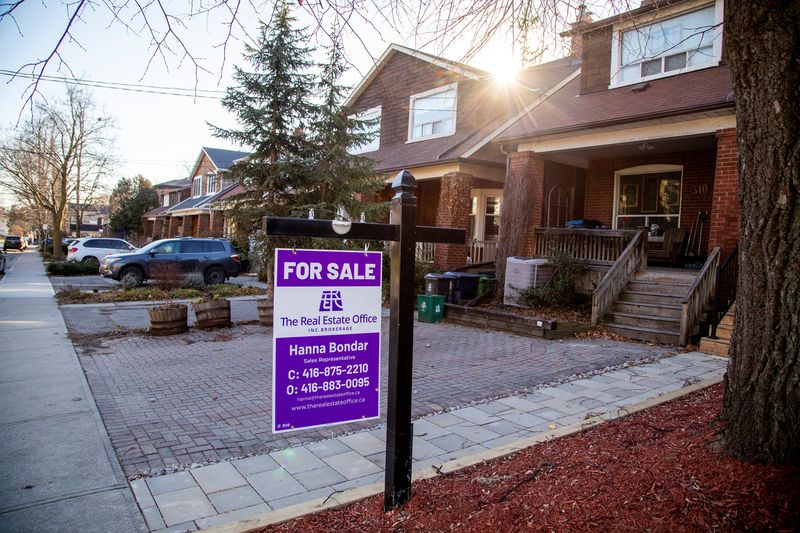
© Reuters. FILE PHOTO: A for sale sign is displayed outside a home in Toronto, Ontario in Toronto, Ontario, Canada December 13, 2021. REUTERS/Carlos Osorio/File Photo
By Promit Mukherjee
OTTAWA (Reuters) – Canada’s federal budget, due next month, is likely to allocate billions of dollars for investing in building homes and low cost housing programs, Housing Minister Sean Fraser said on Monday.
Canada faces a housing affordability crisis as a rapidly increasing immigrant population has far outpaced the number of available homes.
Stubbornly high inflation and interest rates at their highest in 22 years have also driven up rent and mortgage costs.
“I don’t want to necessarily preview what’s going to be revealed in the upcoming federal budget, but there needs to be very substantial investments (for housing),” Fraser told the media on the sidelines of a housing conference in Ottawa.
The expenditure will cover building homes and also support for low cost housing programs, Fraser said.
“When we put those low cost financing programs on the table, we are talking about billions, sometimes tens of billions of dollars to help support the construction of new homes,” he said, without specifying if all will be part of the federal budget announcement or mentioning precise figures.
“So, this has got to be a substantial level of investment with the combined direct spend and financing program and certainly total of billions of dollars.”
Finance Minister Chrystia Freeland is expected to present her budget in the Parliament on April 16.
As housing affordability emerges as a hot-button issue ahead of next year’s election, Conservative Party leader Pierre Poilievre, Prime Minister Justin Trudeau’s main opponent, has blamed the Liberal government for the crisis.
The government has responded with a series of measures to boost supply over the last year, but it has said they will not provide immediate relief.
To keep pace with the rising population, Canada needs to build 315,000 new residences every year between now and 2030, or more than a third above the pace of current housing completions, according to Robert Hogue, assistant chief economist at RBC.


